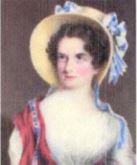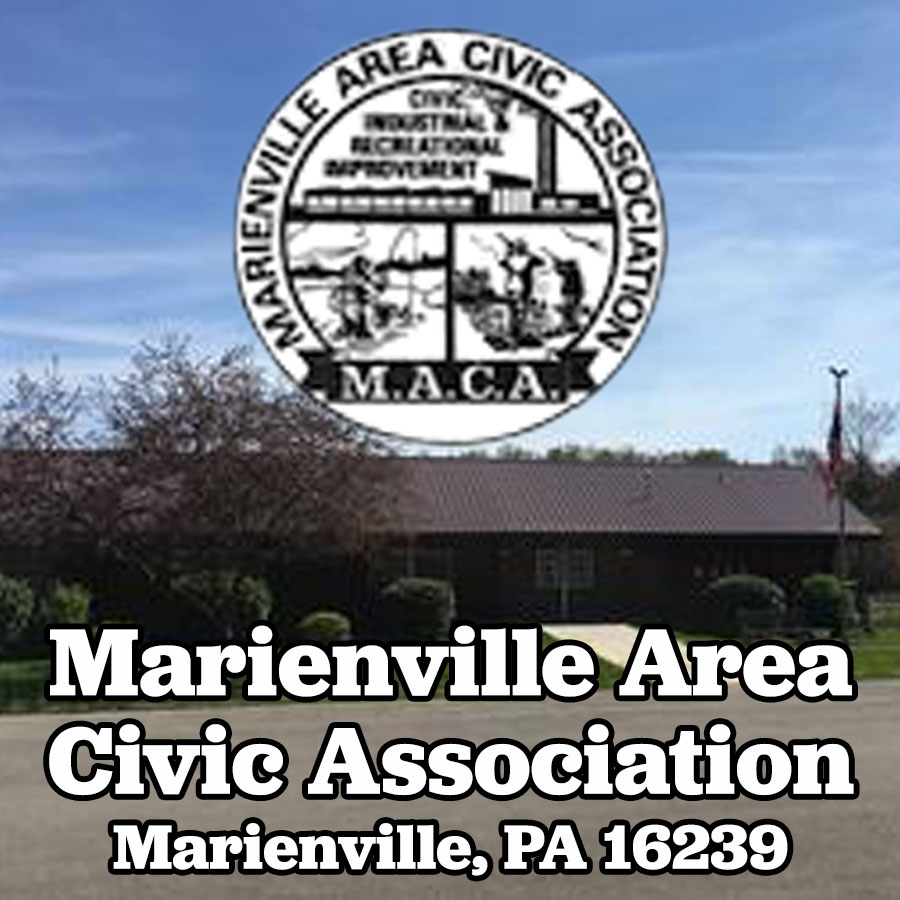Phoebe Ann Ridgway Rush
Born December 3, 1799 Died October 23, 1857
By Bob Imhof
No one person living in Philadelphia during the last half of the present century exerted so great an influence upon the social life of her native city as did Mrs. James Rush It would be interesting to know what fairy godmothers gathered about the cradle of this child and conferred upon the Quaker girl so strong a desire and such distinct ability to lead and shine in the world of letters and of society Although born of Quaker parents Phoebe Ann Ridgway afterwards Mrs. James Rush was not reared in the severe simplicity of the Quaker life of old Philadelphia as much of her education was gained abroad Mr. Jacob Ridgway one of the shrewdest of old time merchants was engaged in an extensive shipping business as a partner in the firm of Smith & Ridgway The three merchant princes of Philadelphia at this period were Henry Pratt Stephen Girard and Jacob Ridgway During the war between England and France it being necessary for one of the partners of the firm of Smith & Ridgway to live abroad in order to protect the interest of the house Mr. Ridgway removed to London with his family He afterwards resided in Antwerp where he occupied the position of United States consul and became a partner in an Antwerp house.
From some lines written in the diary of Dr. James Rush it appears that Mrs. Rush was born abroad. This entry of 1842 seems if it might have been made to remind the writer of his wife’s birthday PAR born in London at No 46 Bishop gate Street Tuesday December 3 1799 at half past four o clock PM In a family letter written the next year little Phoebe Ann Ridgway is spoken of as a lively baby which proves that her characteristic energy early impressed itself upon her relatives An elder sister Susan Ridgway was born in Philadelphia while Mrs. Rush’s brother John Jacob Ridgway was born in Paris A pleasing picture of the little sisters Susan and Phoebe Ann Ridgway was painted while Mr. and Mrs. Ridgway were living in Antwerp The girlish figures in white muslin gowns are charming in their grace and simplicity Phoebe’s tiny red shoes peep out from beneath her skirt and as Susan was not equipped with the much coveted red shoes she was allowed to carry a basket of gay flowers while Phoebe’s basket was empty from which it appears that Mr. and Mrs. Ridgway were as fair and impartial in meting out justice to their offspring as the fathers and mothers of Miss Edgeworth’s Moral Tales The fact that Phoebe Ann Ridgway’s early education and associations were foreign seems to have been overlooked by many persons who misunderstood and misjudged her in her own city a Continental education not being as usual in the early years of the century as it is today Mrs. Rush early developed a taste for society for the gayer side of life for beauty music light and color as well as a decided love of letters In her enjoyment of brilliant and gorgeous surroundings she seemed to have revived some remote and forgotten Oriental strain in her blood while in her intelligence her keen perceptions and her frankness she was all Anglo Saxon Dr. James Rush has sometimes been spoken of as a recluse and a morose and gloomy man This may have been the case after the death of his wife but from all that can be gathered from those who knew the Rushes in their own home theirs was a happy married life Although widely different in character and tastes they possessed certain meeting grounds in their love of study and improvement and in their delight in the society of intellectual men Dr. James Rush was a son of Dr. Benjamin Rush and a brother of the Hon Richard Rush who represented this country in England and France Dr. Rush was a physician and the author of several scientific works Although content to spend his leisure hours among his books he heartily encouraged his wife in her desire to make their home a social as well as an intellectual center. When learned men from abroad sought the society of Dr. Rush in his study he was proud to feel that he could offer them the attractions of his wife’s drawing room where they could not fail to be delighted with the conversation of Mrs. Rush who was cultivated brilliant and original. Mrs. Rush was as fond of books as her husband and was always engaged in some especial course of study but books alone did not satisfy her she craved the stimulus of intellectual companionship Her mind was one of unusual range and grasp masculine rather than feminine in its characteristics, for this reason perhaps Mrs. Rush preferred the society of intellectual men to that of her own sex. She did not engage in the favorite pursuits of the lady of forty years ago shopping visiting and the like. Much of her time was spent in study and the books that she read were of a kind that men were more ready to discuss with her than women. Then again in the Old World which she had visited it was the fashion for certain feminine beaux esprits to gather about them a circle of able and distinguished men Madame de Staël charmed by the powers of her conversation and the wonders of her mind all the men who approached her excepting only the great Napoleon while certain grand dames in England as Lady Ashburton and Lady Holland drew around them a circle of the wits and intellectual giants of their time Mrs. Rush’s idea of holding a salon of being at home to visitors at certain times and not being subject to incursions from callers at all hours of the day was one of her foreign notions that made old Philadelphians wonder and criticize Although Madam Rush’s contemporaries freely criticized her attempts to reform the social life of her own city her balls and matinées were far too elegant and delightful to be ignored and so despite her foreign fashions men and women gladly accepted her invitations and flocked to her entertainments even if she declined to spend her days in the drawing room receiving a stream of visitors and preferred her book or piano to a dish of gossip at high noon The hours of this busy woman’s day were all appropriated to study to the practice of music to reading and to a daily constitutional up and down Chestnut Street from the Schuylkill to the Delaware which she never omitted and which was a sociable affair as she was always attended by two or three gentlemen and met many of her acquaintances some of whom joined her. Among Mrs. Rush’s cards are quite a number upon which is written an informal engagement to take a walk, some of these are in French as when Mr. Saul de la Nouvelle Orleans wrote upon his card a few lines in French to learn whether their promenade should be at half past two or five o clock other engagements are in Italian or Spanish as Mrs. Rush among other attainments was the mistress of several languages. This accomplishment drew many strangers to the Rush mansion where foreign officials and visitors from abroad and from the southern portions of our own continent found a warm welcome and a hostess who was ready to converse with them in their own tongue.
Joseph Bonaparte who established himself in or near Philadelphia soon after his arrival in America was a guest of Madam Rush. Among cards left at her house 179 Chestnut Street opposite the State House are some bearing the autograph Le C de Survilliers which is the name by which the ex-King of Spain was known in Philadelphia life He is described by those who knew him as a courteous and charming man although Mr. Samuel Breck who met the Count on Third Street said that his appearance was that of a plain country gentleman and wondered that one of his nine servants had not brushed his hat which was rather shabby At Lansdowne at his home at Twelfth and Market Streets and at Point Breeze near Bordentown New Jersey the Count de Survilliers exercised a delightful hospitality which is still remembered by men and women now living in Philadelphia and elsewhere It was at Point Breeze that the Count de Survilliers passed so many years during some of which his exile was shared by his daughters Zénaïde and Charlotte by young Murat his nephew and always by his faithful attendant and friend Louis Maillard.
In March 1839 Dr. Rush recorded in his diary, this day gave a dinner party and musical party in the evening to Count Survilliers Joseph Bonaparte this was while the Rushes were living on Chestnut Street opposite the State House where they gave a number of small musical soirées and receptions as hundreds of notes of acceptance and regret all carefully labeled and preserved by Dr. Rush abundantly testify. He also made notes upon special occasions as when he recorded in his diary on November 14 1838 Madam Caradori Allan spent this evening with us in company with a party about fifty friends, she sang five songs. Madam B also sang. The two Miss Fords played as did Miss Margaret Sergeant and Mr. Taylor. The Miss Sergeant here mentioned was afterwards the wife of General George Gordon Meade of Pennsylvania. Another night Dr. Rush wrote he and his wife went to the Musical Fund Hall to hear Madame Caradori sing after which they repaired to Mrs. Carroll’s on Chestnut Street opposite the Mint where they met Madame Caradori and other friends to the number of about twenty and spent the remainder of the evening so agreeably that they did not return home until two o clock in the morning which was rather gay for old Philadelphia The cheerfulness with which Dr. Rush recalls these nocturnal gayeties suggests no thought of his having been bored by them. Among frequent and informal guests of Mrs. Rush while she lived opposite the State House were Mr. and Mrs. Moncure Robinson Mr. and Mrs. James Dundas Mr. and Mrs. Nicholas Biddle and beautiful Mrs. John Craig who afterwards married Edward Biddle Mr. Nicholas Biddle seems to have found favor in the eyes of the chronicling and usually fault finding M de Bacourt who was in America in 1840 as he recorded of him at the Athenaeum I made the acquaintance of Mr. Biddle whose name has resounded in financial circles abroad M de Bacourt described Mr. Biddle as a handsome man wearing a blue coat with brass buttons yellow nankeen pantaloons nary colored gloves and a glossy beaver. It was he who said that the world was ruled by three boxes the ballot box, the cartridge box and the band box. Mr. Biddle’s quips and quirks and jeu d esprits were as much prized in his day as were those of Francis Hopkinson and Judge Peters which served to enliven the gloom of a darker period of our history. All of these men possessed great social charm and good humor and despite their gift of tongues were ever more loved than feared A list of the visiting cards left for Mrs. Rush at the house 179 Chestnut Street and at the new mansion further west on the same street would make a fairly accurate social register of the period. Among these cards are to be found the names of all such well known Philadelphia families as the Willings, Cadwaladers, Merediths, Fishers, McKeans, Whartons, Francises, Sergeants, Shippens, Tilghmans Hopkinsons and Chews while from other cities and countries came many persons who have indelibly impressed their names upon the pages of history science philosophy and literature. On these bits of pasteboard yellowed by time we read the names of such guests as George Bancroft the historian Martin Van Buren Mr. and Mrs. Fenimore Cooper, Cassius M. Clay and Miss Harriet Martineau whom one lady speaks of as so deaf and so decided in her opinions as to make the give and take of conversation impossible while Mrs. Kemble said that if her stay in Philadelphia were long enough she and Miss Martineau might become friends General J. Harlan who had served under the Ameer of Cabul was entertained at the Rush house and doubtless had yards of Arabian Nights tales with which to entertain the guests of Mrs. Rush and Henry W. Longfellow not the beautiful old man who came to Philadelphia in 1876 but the young poet with the world before him. These and many other persons of distinction were warmly welcomed by Mrs. Rush her quick appreciation of genius and her readiness to honor it being one of the admirable sides of this woman’s character One of her favorite sayings was an ex-President, a foreign minister a poet two or three American artists as many lady authors a dozen merchants lawyers physicians and others who are there on the simple footing of gentlemen their wives who came as respectable and agreeable ladies fifty young men who are good beaux and dance well, fifty pretty girls without money but respectable well-dressed lively charming are always indispensable at a party.
Find more information online about the PA Great Outdoors region at VisitPAGO.com or call (814) 849-5197.

















